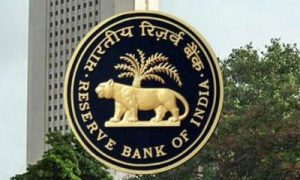It’s important to note that communication with your bank is crucial if you find yourself unable to make an EMI payment.
If you miss a loan (home, car or personal) EMI (Equated Monthly Instalment), there are several potential consequences that can vary based on the bank’s policies, the type of loan, and the specific terms and conditions of your loan agreement. Remember that each bank may have slightly different policies and procedures, so it’s essential to refer to your loan agreement or contact your bank directly for precise information regarding the consequences of missing an EMI payment. If you feel that unfair treatment is being done by the lender, you may raise a grievance with the RBI.
Read More: Sukanya Samriddhi Yojana: Invest in this govt scheme to gain up to Rs 67 lakh
Here’s what generally happens if you miss EMI of a loan:
Late Payment Charges: The bank will typically levy late payment charges for missing an EMI payment. These charges can vary from bank to bank and might be a fixed amount or a percentage of the outstanding EMI.
Impact on Future Loan Applications: If you apply for any future loans with the same bank or other financial institutions, your history of missed EMI payments could affect your loan application. Lenders might view you as a higher credit risk.
Credit Score Impact: Missing EMI payments can have a negative impact on your credit score. Your credit score is a crucial factor in determining your creditworthiness for future loans or credit applications. A lower credit score could lead to difficulties in obtaining credit in the future.
Read More: Retirement Planning: How to choose the right retirement and pension plans
Reminder Calls and Messages: Banks usually start with sending reminders through calls, messages, or emails to remind you about the missed payment and to prompt you to make the payment as soon as possible. If you continue to miss EMI payments, your lender may send you a warning letter. This letter will remind you of your obligation to make your payments on time and will also inform you of the consequences of defaulting on your loan.
Penalty Interest: Some banks may charge penalty interest on the overdue amount. This is usually a higher interest rate compared to the regular EMI rate and is applicable until the outstanding amount is paid. Recently, RBI announced several measures in this regard, which are mentioned in the later part of this article.
Legal Action: In case of repeated and prolonged defaults, the bank might initiate legal proceedings against you to recover the outstanding amount. This can involve sending legal notices and might lead to the initiation of recovery proceedings as per the law.
Collateral Seizure (Secured Loans): If the loan is secured against collateral (such as a home or a vehicle), the bank might have the right to repossess or seize the collateral as per the terms of the loan agreement.
It’s important to note that communication with your bank is crucial if you find yourself unable to make an EMI payment. If you anticipate difficulties in making a payment, it’s advisable to contact your bank in advance and discuss the situation. Some banks might offer temporary relief options like restructuring the loan or providing a short-term grace period, especially if your inability to pay is due to unexpected financial hardships.
Read More: Education Loan: Comparative Analysis Of Loans For India And Abroad: Which Should You Choose?
RBI relief to loan customers
Concerned over the practice of banks and Non-Banking Financial Companies (NBFCs) using penal interest as a revenue enhancement tool, recently the Reserve Bank of India came out with modified norms, under which lenders would be able to levy only ‘reasonable’ penal charges in case of default in repayment of loans.
The banks and other lending institutions will not be allowed to levy penal interest with effect from January 1, 2024, the RBI said in its notification on ‘Fair Lending Practice-Penal Charges in Loan Accounts’.
“Penalty, if charged, for non-compliance of material terms and conditions of loan contract by the borrower shall be treated as ‘penal charges’ and shall not be levied in the form of ‘penal interest’ that is added to the rate of interest charged on the advances,” RBI said in a notification.
It further said the quantum of penal charges “shall be reasonable and commensurate with the noncompliance” of material terms and conditions of loan contract without being discriminatory within a particular loan/product category.
The RBI also directed banks to allow individual borrowers paying loans through EMIs to opt for fixed interest rate system or extension of loan tenure, a move aimed at preventing loanees from falling into the trap of negative amortisation, in wake of rising interest rate.
Home, auto and other personal loans are linked to external benchmark rates, like repo rate.
RBI said that at the time of sanction of EMI-based floating rate personal loans, banks and NBFCs should take into account the repayment capacity of borrowers to ensure that adequate headroom is available for elongation of tenure and/ or increase in EMI, if interest rate rises.
Also, the borrowers should be given a choice to opt for enhancement in EMI or elongation of tenure or for a combination of both options; and to prepay, either in part or in full, at any point during the tenure of the loan.
Levy of foreclosure charges/ prepayment penalty should be subject to extant instructions.
Further, they should make accessible to the borrowers a statement at the end of each quarter containing details like the principal and interest recovered till date, EMI amount, number of EMIs left and annualised rate of interest / annual percentage rate for the entire tenure of the loan.





































